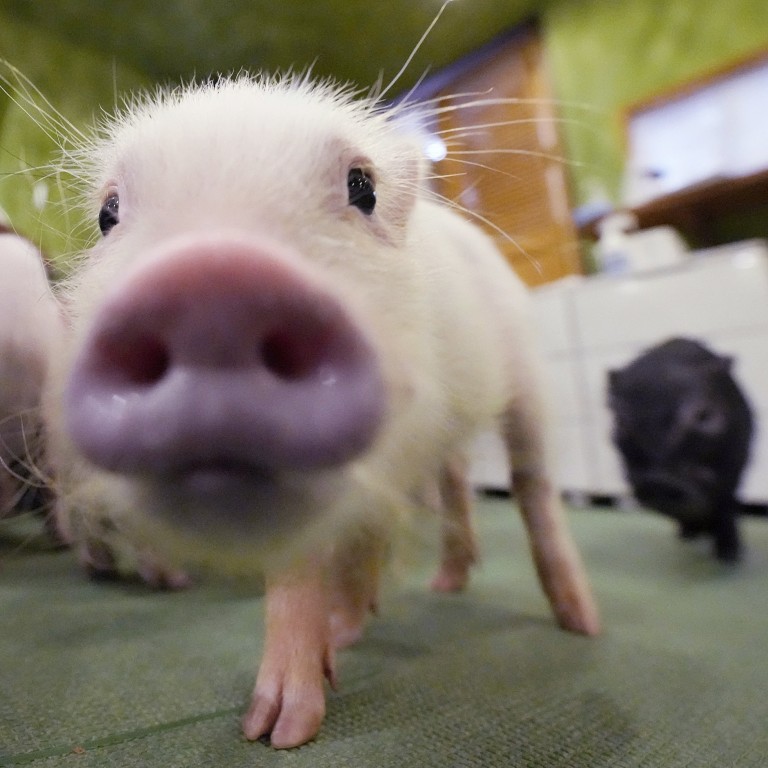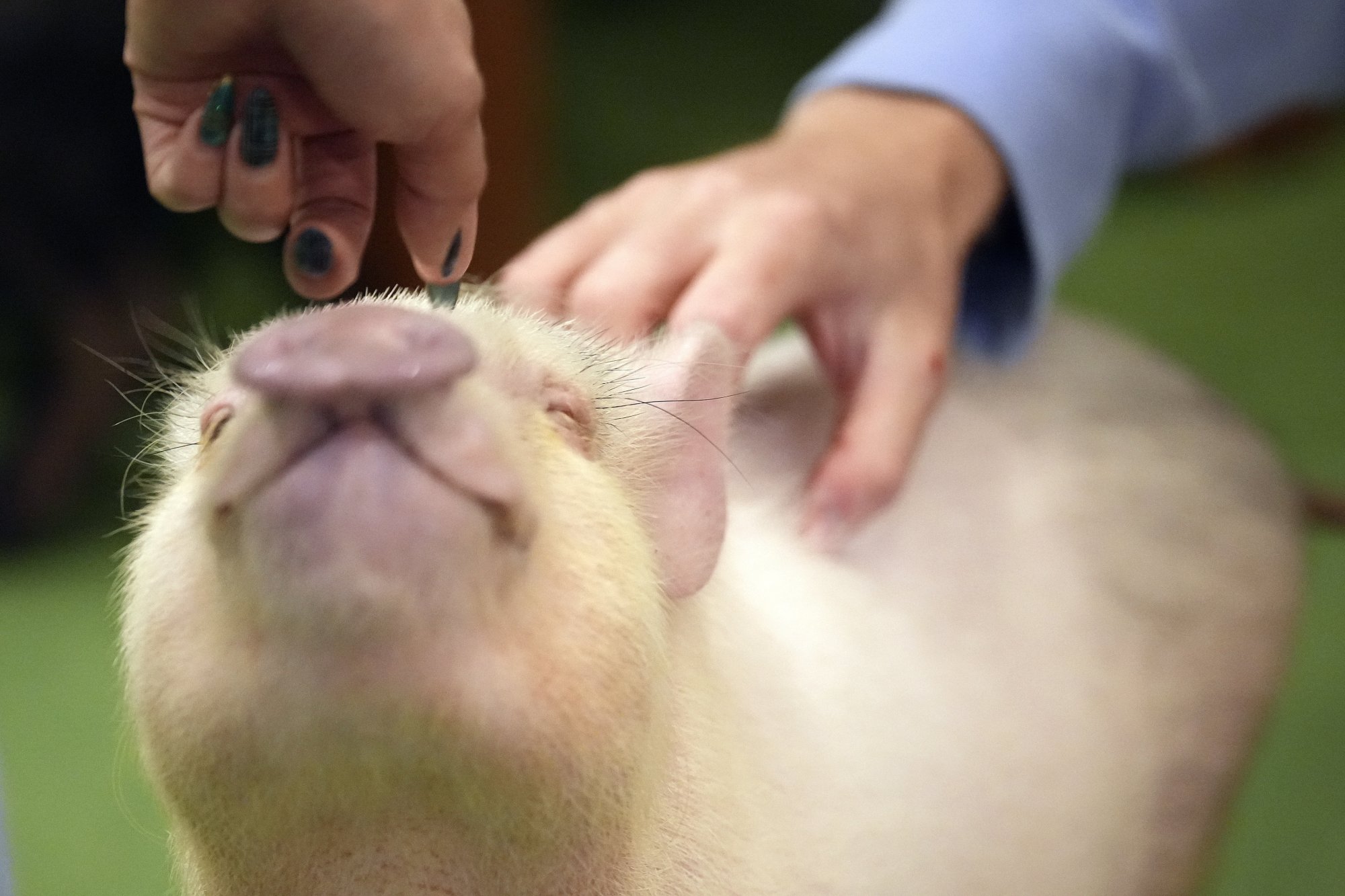
As Japan grapples with donor shortage, scientists breed first pigs for human organ transplant
- The move comes as Japan struggles with organ donor shortages, with just 3 per cent of those registered for a transplant receiving them
- Once the piglets are confirmed growing, they will be donated to scientific institutes in Japan for use in research on organ transplants to other animals such as monkeys
But the safety of such cross-species transplant will be investigated with further animal testing for the time being, said the venture called PorMedTec that was launched based on the research of the Meiji University International Institute for Bio-Resource Research.
The team including members from US biotechnology company eGenesis bred the pigs, born on Sunday, using cells supplied by the US company in September that had 10 different genes modified to resist rejection by the human body, PorMedTec said in a release.

Fertilised eggs, produced in October using somatic cell cloning technology to create genetically identical individuals, were transplanted into the uterus of a surrogate mother pig. The three piglets were born by caesarean section.
Once it has been confirmed that they are growing, the pigs will be donated to scientific institutes in Japan for use in research on organ transplants to other animals such as monkeys.
“I hope to use this as an opportunity to consider the challenges of human organ transplants,” said PorMedTec founder and chief scientist Hiroshi Nagashima.
In Asia, organ donors are mostly women and transplants go mainly to men: study
It is hoped that animal-to-human cell and organ transplants, known as xenotransplantation, will provide a solution for the shortage of organ donors.
Japan currently has around 16,000 people registered as waiting for organ donations, although only about 3 per cent receive them each year, according to the Japan Organ Transplant Network.
Transplant of pig pancreatic islet cells into patients with type 1 diabetes and a temporary transplant of a pig kidney into a fetus with severe kidney disease are planned in Japan, though such procedures have not been carried out before.

